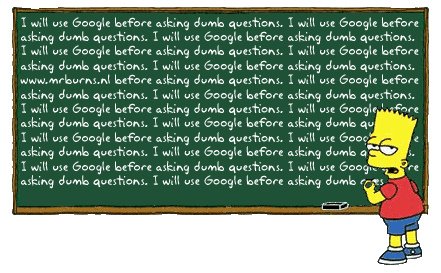Ask Smart Questions to Avoid Smartass Answers
06 Sep 2017
Introduction
I read this interesting guide by Eric Steven Raymond and Rick Moen. This guide gave a detailed and specific way to write questions online in a way to elicit the best responses. I highly recommend reading this guide, as it gives plenty of guidance on trivial mistakes.
The Not So Smart Way
We can see that this question violates many of the principles outlined in the guide. There is no prior research attempt shown, no prior solving attempt, and shows absolutely abysmal effort. The problem seems like a homework problem, and the person is simply looking for a solution, which is against another ethical principle, as homework assignments are made to teach, and soliciting answers is frowned upon in the community. Overall, there was a single response, as most people simply saw that this person put no effort and wants the answer spoon fed to him/her. The question also has many downvotes, likely for the lack of elaboration. There was also a response to have the person elaborate on his/her own attempts, which was ignored. This is the definition of asking questions the wrong way.
The Smart Way
Now, this question shows that the user attempted to solve the problem and even showed test cases for those answering to work with. It precisely describes the problem and then shows what version of Java, which build, and how he obtains his time inputs. Now there are many high quality answers, and this problem took some back and forth communication to solve. The answer is also bizarre, I recommend you read it, nonetheless a much more difficult question than the previous, but we get better and more clear answers here than in previous question. Likely because by describing the problem and our attempt at a solution in depth, we make it more interesting and challenging.
Conclusion
Although it is rash to say that asking questions the “smart” way will elicit better and higher quality responses based off this small sample size, we can definitely understand why we would get higher quality responses if we asked the “smart” way. Showing effort, being clear and concise, and providing relevant information makes everything easier and more fun to solve, especially if the problem is a rather tough one. As Socrates once said “The only true wisdom is in knowing you know nothing.” Drop the ego and keep asking questions to get a deeper understanding.